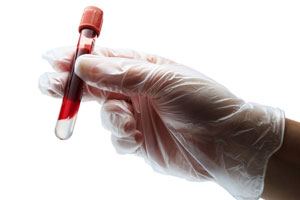Taking discovery from experts was fairly routine before the coronavirus pandemic. Under the federal rules in civil cases, an expert would write a report, the report would be disclosed to the opposing party, and that party would typically take the expert’s deposition. State rules generally track those procedures.
After the pandemic, taking a deposition is a more complicated issue. Social distancing is difficult in a conference room where the expert, at least two lawyers, a court reporter and a possibly a videographer all gather. Experts and lawyers may be reluctant to sit across from each other at a conference table. They might also have reservations about handing documents back and forth.
Wearing a mask muffles questions and answers and makes it difficult for a court reporter to produce an accurate transcript. Since depositions are typically recorded on video, the mask also interferes with the viewer’s opportunity to gain nonverbal cues about the expert’s credibility by watching the expert’s facial expressions.
Remote Depositions
Rule 30(b) of the Federal Rules of Civil Procedure allows parties to stipulate, or the court to order, “that a deposition be taken by telephone or other remote means.” In the past, parties sometimes refused to stipulate to remote depositions because they wanted to drive up the opposing party’s cost of litigation.
The importance of social distancing during a pandemic, and the likelihood that precautions will be the “new normal” for an extended time, will likely make it easier to persuade federal judges to grant Rule 30(b) motions permitting remote depositions. Objecting to remote depositions during a pandemic is unlikely to curry favor with a judge who is truly neutral.
Platforms like Zoom and WebX allow people at multiple locations to participate in a meeting. Those platforms lend themselves to remote depositions. The court reporting service might suggest a different platform that offers helpful features, such as exhibit display and the ability to read real-time transcription.
Most companies that provide court reporters and videographers have experience with remote depositions. It makes sense to select a reporter shortly after the deposition is scheduled and to listen to the reporter’s suggestions to make the expert’s deposition proceed smoothly.
It is usually preferable for the court reporter to be in the same location as the expert witness. Errors caused by internet lags and equipment glitches are less likely when the reporter is present to hear the witness testify.
Practical Concerns
Taking or offering a remote deposition raises practical concerns that lawyers for both parties need to address. First, the party taking the deposition should assure that the reporter or videographer is “an officer authorized to administer oaths” as Rule 28(a) requires, unless the parties stipulate otherwise. A reporter or videographer who is also a notary will typically satisfy the requirement that the deposition be taken before an officer, although it may be possible to stipulate that a notary at a remote location will administer the expert’s oath.
Second, it makes sense to mark and circulate exhibits ahead of the deposition. The expert report will likely be an exhibit that everyone will have in advance, but marking exhibits on the fly and then showing them to a witness — a common practice during in-person depositions — is problematic when the witness is asked to view an exhibit on a screen.
While attorneys might still try to surprise an expert with a “gotcha” exhibit, the effective use of document discovery prior to an expert’s deposition and good witness preparation should limit the likelihood that an expert will be asked about an exhibit the expert has not seen in advance. Marking exhibits and circulating them by email or through a shared link will make a remote deposition proceed more smoothly. Depositions conclude more quickly when the expert witness is familiar with the exhibits and can consult a hard copy rather than squinting at a screen.




